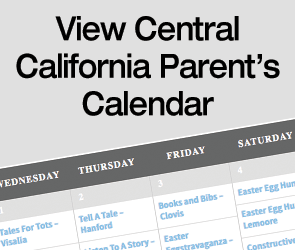The Four Love Actions

By Christina Katz
Just because you have a family, does not mean you have a close family. Parents with bonded families cultivate a safe, secure environment so everyone in the family can relax, feel their feelings, and love each other. When you create a caring environment within your home, your family will connect and thrive regardless of what is going on in the outside world. However, if you establish an environment where emotions cannot be expressed, family members may struggle to feel loved, lovable, and loving.
The four actions of love have nothing to do with gender, race, class, or social status. They are simply a conscious choice to create a loving family context no matter what. Children who don’t get their emotional needs met tend to become adults who seek external fixes for internal needs. Since love is an inside job, unfortunately this never works. Kids who do not experience enough love within the family unit are likely to become grown-ups who struggle as they move out into the world.
If talking about love makes you feel uncomfortable, you may not have grown up in a family where emotional values were openly expressed and appreciated. Even so, it’s never too late to cultivate a loving family. The best way to teach kids how to love themselves, so they can smoothly transition from childhood to adulthood, is to actively practice the four love actions with yourself and then with each member of your family. When parents consciously set a loving tone, everyone in the family benefits.
ATTENTION
Attention is a basic human need. Babies who don’t get enough observant care, cannot thrive. A child who does not get noticed enough may have trouble acknowledging his feelings. Attention from parents is what helps us learn how to take care of ourselves. When we don’t give ourselves adequate attention, it’s easy to become drained and depleted. You can’t activate your personal power without paying attention to yourself. Paying attention to ourselves means putting ourselves first and staying constantly aware of our feelings and impulses, so we can steer our way appropriately through life. If you feel out of touch with this love action, start with self-attention and then take time to observe those closest to you. When you do, you’ll intuitively know what to say and do.
ACCEPTANCE
Acceptance is what allows us to relax and be ourselves. Without validation from parents, a child cannot learn self-acceptance. A child who feels rejected by her parents will reject herself and eventually also reject others. Children need unconditional love, so they can learn to ride the wide spectrum of feelings that come with life. Emotions make us human, and acceptance is what allows feelings to pass through us without taking over the entire show. Parents need to take care not to project unwanted or feared qualities onto babies and children. When parents can accept and process their feelings on an ongoing basis, children do not have to carry burdens that do not belong to them. If you feel out of touch with this love action, work on self-acceptance and then extend an accepting attitude to your loved ones. You’ll quickly see how allowing formerly rejected parts of yourself leads to more tolerance of others.
APPRECIATION
Appreciation makes us feel like we have something to offer. When parents enjoy a child, a fuller person comes to life and feels safe to share more authentically. When we appreciate ourselves, we can face the world with more optimism and cheer. Appreciation leads to gratitude, but it’s hard to appreciate yourself when you have not felt understood. Without a sense of our own worth, it’s difficult for us to appreciate others. Appreciation must be genuine, of course. Without attention and acceptance, appreciation cannot follow. If you feel out of touch with this love action, start with self-appreciation and then try valuing your loved ones more. The wonderful thing is that as soon as you practice the art of appreciation, you feel better immediately, even if you are out of practice.
AFFECTION
Affection warms our hearts and helps us feel connected to others. When we experience fondness from others, we can love ourselves more easily. Affection can be communicated by words, gestures, and touch. Saying, “I love you,” doing thoughtful things, holding hands, and offering hugs expresses our internal feelings of fondness towards another. Affection builds on attention, acceptance, and appreciation. It’s always a little weird when someone goes from distant to trying to hug you. So make sure you lay the groundwork with your kids first. And always be respectful with older children about touching. If they don’t want to be touched, find other ways to show affection until they come around. If you feel out of touch with this love action, start with self-affection and then gradually express more warmth for your family. Affection is always win-win, benefiting both the hugger and the hugged.
Parenting can be complicated. But choosing loving actions on an ongoing basis can bring parenting back to simple yet powerful basics. Activate the power of the four love actions in your home and watch the immediate positive effect they have on you, on your family, and on the world.
SELF-CARE FOR PARENTS
• Self-attention means self-awareness, self-reflection, slowing down and turning within. Paying attention to what is happening within us in the moment. Not taking immediate action, but just making time for contemplation.
• Self-acceptance means letting go of guilt, shame, and needless suffering. Appreciating what we feel, think, and believe. Recognizing things that annoy us and working on resolving them in ways that honor our boundaries.
• Self-appreciation means celebrating our positives. Paying attention to the fact that we are good, we do good, and we deserve to feel even better. Relishing our uniqueness and individual self-expression. Letting go of what others think and cultivating healthy self-regard.
• Self-affection means active self-care. Paying attention to what we need and want and being open to receiving those things on an ongoing basis. Rewarding our self for no reason, letting more good in, and loving ourselves steadily in a sometimes chaotic world.
• Self-love is a phrase that has become a cliché. What does it really mean? When we break self-love down into the four love actions, suddenly we know what we need to do in order to love our self and others more.
Central California Parent is the #1 FREE parenting resource for Central Valley families.
Stay connected with Central California Parent throughout the month!
• Like Us on Facebook
• Follow Us on Instagram
• Follow Us on Pinterest
• Follow Us on Twitter
• Subscribe For our Family E-Newsletter
• Read Our Digital Edition
• Enter for our FREE Giveaways






